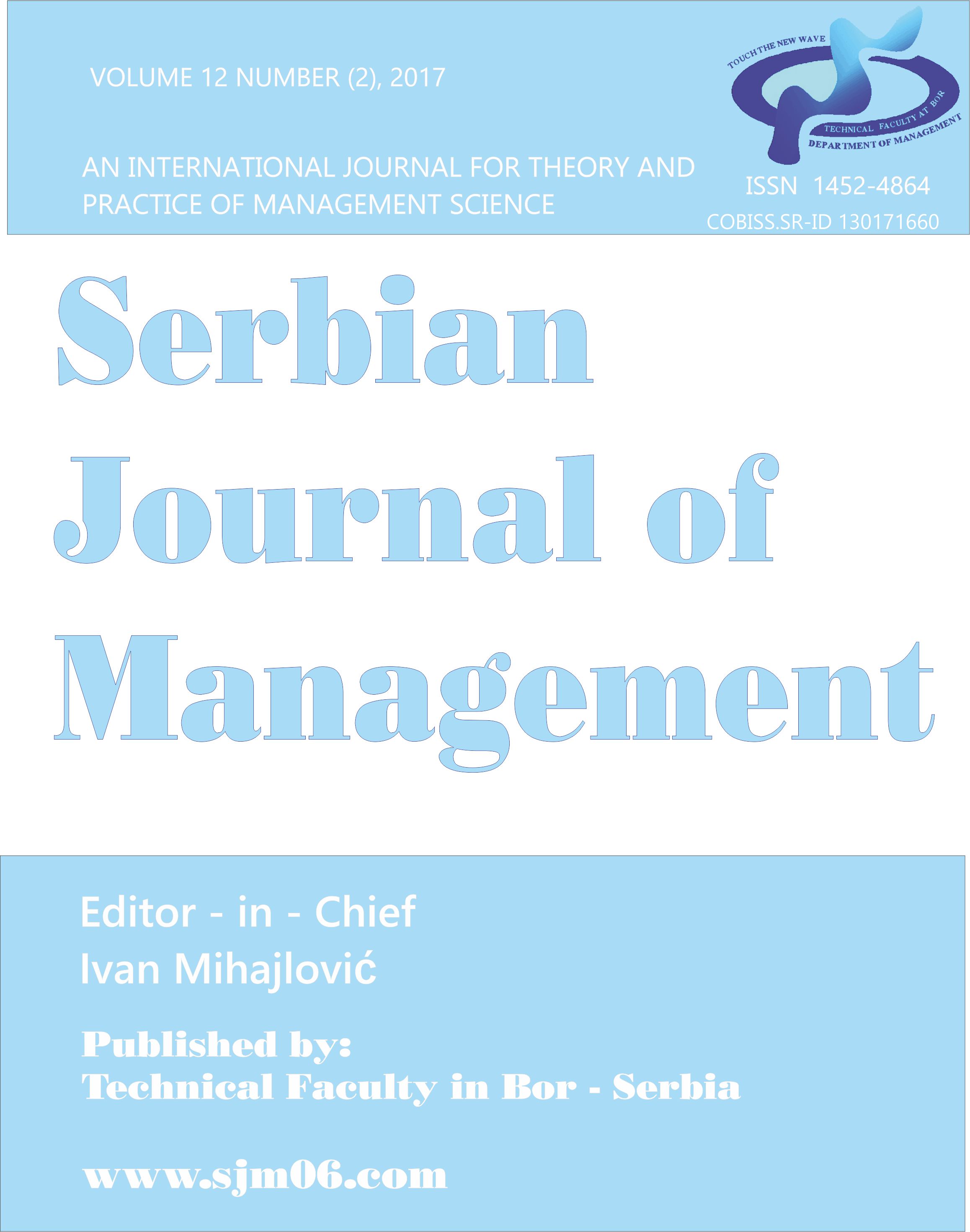Economic and environmental effects of collection and primary recycling of packaging waste from hygiene and cleaning products in Serbia
Abstract
Collection and primary recycling of packaging waste from hygiene and cleaning products occupy an important place in an integral waste management system. It is a fact that management of such waste helps reduce negative economic and environmental impact on one hand and helps bring direct and indirect benefits from collection and primary recycling of the packaging waste on the other hand. In order to obtain more comprehensive data on the economic effects of management of packaging waste from hygiene and cleaning products, this paper presents a methodology for calculating the relevant values associated with the waste. The paper also provides data on the amount, type, and market value of packaging waste from hygiene and cleaning products. Using the data on economic and environmental impact of the packaging waste from hygiene and cleaning products, as well as the data on economic benefits from this type of waste, it is possible to analyse the profitability of its collection and primary recycling in Serbia.
References
Brunner, P., & Fellner, J. (2007). Setting priorities for waste in developing countries. Waste Management & Research, 25, 234-240.
Doležalová, M., Benešová, L., & Závodská, A. (2013). The changing character of household waste in the Czech Republic between 1999 and 2009 as a function of home heating methods, Waste management, 33 (9), 1951-1957.
Inglezakis, V., & Moustakas, K. (2015). Household hazardous waste management: A review. Journal of Environmental Management, 150, 310-321.
Pejčić, D., & Vranjanac, Ž. (2016). Environmental impact analysis of hygiene and cleaning products packaging waste, Safety engineering, Faculty of occupational safety in Nish, 21-27.
Price report. (2014). SanSI Marketing System, Belgrade, Serbia.
Spasić, D. (2003). Economics of Occupational Safety, Grafika Galeb, Niš, Serbia. (In Serbian)
Statistical Yearbook of Serbia. (2009-2013). Republic Institute for Statistics in Belgrade, Belgrade, Serbia.
Theisen, H., Vigil, S., & Tchobanoglous, G. (2012). Integrated solid waste management, Engineering Principles and Management Issues, McGraw-Hill Inc., 212-225.
Vranjanac, Ž., & Spasić, D. (2017). Waste management workforce cost analysis in Serbia from 2009 to 2015, Ekonomika, Society of economists, 63 (2), 105-112. (In Serbian).
Vranjanac, Ž., & Spasić, D. (2016). Economic Effects of Collection and Primary Recycling of Packaging Waste from Hygiene and Cleaning Products in Serbia, 6th International Symposium on Environmental and Flow Management - EMFM 2016, Bor, Serbia, 106-118.
Vranjanac, Ž. (2015). Economic-Environmental Impact of Household care Products on the environment. Master’s thesis, Faculty of Occupational Safety in Nis, Nis, Serbia. (In Serbian)
Vranjanac, Ž. (2016). The management of hygiene and cleaning products packaging waste, XII Internacional May Conference on Strategic Management – IMKSM 2016, Bor, Serbia, 790-798.
Vujić, G., &, Brunner, P. (2009). Sustainable Waste Management, Faculty of Technical Science, Novi Sad, Serbia. (In Serbian)
The Author wishes to submit the Work to SJM for publication. To enable SJM to publish the Work and to give effect to the parties’ intention set forth herein, they have agreed to cede the first right to publication and republication in the SJM Journal.
Cession
The Author hereby cedes to SJM, who accepts the cession, to the copyright in and to the paper.
The purpose of the cession is to enable SJM to publish the Work, as first publisher world-wide, and for republication in the SJM Journal, and to grant the right to others to publish the Work world-wide, for so long as such copyright subsists;
SJM shall be entitled to edit the work before publication, as it deems fit, subject to the Authors approval
The Author warrants to SJM that:
- the Author is the owner of the copyright in the Work, whether as author or as reassigned from the Author’s employee and that the Author is entitled to cede the copyright to SJM;
- the paper (or any of its part) is not submitted or accepted for publication in any other Journal;
- the Work is an original work created by the Author;
- the Author has not transferred, ceded, or assigned the copyright, or any part thereof, to any third party; or granted any third party a licence or other right to the copyright, which may affect or detract from the rights granted to SJM in terms of this agreement.
The Author hereby indemnifies the SJM as a body and its individual members, to the fullest extent permitted in law, against all or any claims which may arise consequent to the warranties set forth.
No monetary consideration shall be payable by SJM to the Author for the cession, but SJM shall clearly identify the Author as having produced the Work and ensure that due recognition is given to the Author in any publication of the Work.
Should SJM, in its sole discretion, elect not to publish the Work within 1 year after the date of this agreement, the cession shall lapse and be of no further effect. In such event the copyright shall revert to the Author and SJM shall not publish the Work, or any part thereof, without the Author’s prior written consent.

